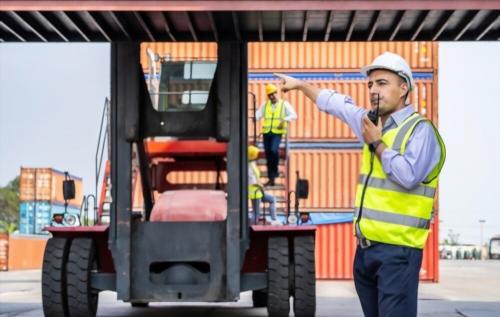7 Factors That Help Determine Best Mode Of Transport For Your Goods Movement

There are several modes of transportation. They are classified into 5 primary types - Railways, Roadways, Waterways, Airways and Pipelines. They are the lifeline of the logistics industry and the backbone of any supply chain.
Talking about the supply chain, an appropriate mode of transport is required to get the raw material from the supplier to the manufacturing units and from the manufacturing units to the respective warehouses. Now the appropriateness of a particular transport type hired from freight solution providers depends upon many factors:
1. Kind of product it is going to carry in it, i.e, if it is perishable, non-perishable or breakable.
2. The volume of the consignment
3. Source and destination location of the supply
4. Amount of time given for pick up and delivery
5. Budget
Various permutations and combinations of these factors need to be taken into consideration before deeming any of these modes of transport good or bad for any given product or commodity.
Let us see these 7 factors:
1. Cost: Cost is a major driving force behind choosing a particular type of transport. The cost of transportation depends upon the amount and type of good being transported.
If the heavy and bulky goods are to be moved within the borders for a long distance, then rail transport is best in terms of safety and cost. It is the most economical.
For short-distance transportation of small amount of goods, land transport via trucks is a preferred choice of most importers and exporters.
However, for cross border goods movement, freight management solution companies will opt for waterways which is the cheapest mode of transport for heavy and bulky consignments. The only drawback is that it is too slow. If time is not a governing factor, then transportation by ship is the best.
Contrary to it is the air transport when you have time constraints and objects to be carried are perishable, fragile or valuable. Though it is the most expensive way to transport goods, it is the fastest way and hence saves a lot of time.
2. Reliability and Regularity of service: Considering how regular and reliable a particular mode of transport is, can help you decide how to get your merchandise transported. Natural factors like bad weather conditions like heavy rains, snow, storms and fog may affect the reliability and regularity of transport service.
3. Safety: Apart from picking and delivering a consignment in time, getting the goods safely in their original form is also crucial for any logistic company. Thus, before hiring a freight solution provider, it must be ensured that the chosen mode of transport transits the shipment in a perfectly safe and secure condition from point A to B. Waterways i.e. ships are the least secure methods of transport as the goods are directly exposed to the perils of sea whereas land and rail transport is the safest.
4. Type of goods: The type of products greatly influence the choice of transport. For example, for heavy and bulky goods, ships and railways are most preferred for long-distance transit. And products that are highly valuable and are marked fragile and breakable, land transport and air transport are best suited. Since air transport is the most expensive, the mode of transport may influence the final cost of the product in the market.
5. Timescale: Another important factor is time. Depending upon the time given by the client in which a shipment needs to be picked from or delivered at a particular point, the mode of transport plays a significant role in fulfilling business commitments. When time is less and products are of high value or perishable or dangerous, transiting them via planes is costly but the best decision. However, if there is no time constraint, then road transport via trucks for a short distance and via trains for long-distance is preferable. If you have a consignment to ship, talk to your freight solution providers company for the best option they have for you.
6. Flexibility: When it comes to flexibility and customization, road transport is most accommodating as it is least influenced by weather conditions, and other constraints like shipping routes, flight timings, etc. It is so because it can be run on personal convenience and hence offer door-to-door delivery.
We can conclude this article by saying that before entering into any business contract with a freight management solutions company, logistic managers must thoroughly weigh various transport options available to transit their product safely and securely to the destination so that they can run the business without having to stop in midway.
Advertise on APSense
This advertising space is available.
Post Your Ad Here
Post Your Ad Here
Comments